If you spent much of October delving into a horror-movie marathon, November presents the perfect opportunity to catch up on new releases from last month you may have missed and are now expanding or in wider circulation—including Decision to Leave, Aftersun, TÁR, All That Breathes, Armageddon Time, The Banshees of Inisherin, and The Novelist’s Film. This month has its own formidable slate, from late-period auteur offerings to ambitious gambles to striking first-time features. Check out our picks to see below.
15. Causeway (Lila Neugebauer; Nov. 4)

Jennifer Lawrence’s sole outing this year is Causeway, which comes from first-time director Lila Neugebauer. As C.J. Prince said in his review, “It comes as a bit of a surprise to see how jarring Jennifer Lawrence’s presence is in Causeway, her new film directed by first-time filmmaker Lila Neugebauer. A subdued character drama about a soldier recovering back home after suffering a brain injury in Afghanistan, it marks both Lawrence’s return to playing a central character since 2018’s Red Sparrow (unless you want to count her part in 2021’s ensemble Don’t Look Up) and her most grounded role in an even longer time. Go back to the mid-2010s and you’ll find her playing a Russian spy, a mutant superhero, a metaphor for mother nature, and (scariest of all) trapped in outer space with Chris Pratt, which might explain why it takes some adjusting to see her as a regular person trying to rebuild themselves. It’s a welcome and savvy move: Causeway serves as a reminder of her strengths, which rise above the lackluster material she’s working with.”
14. The Balcony Movie (Pawel Lozinski; Nov. 30)
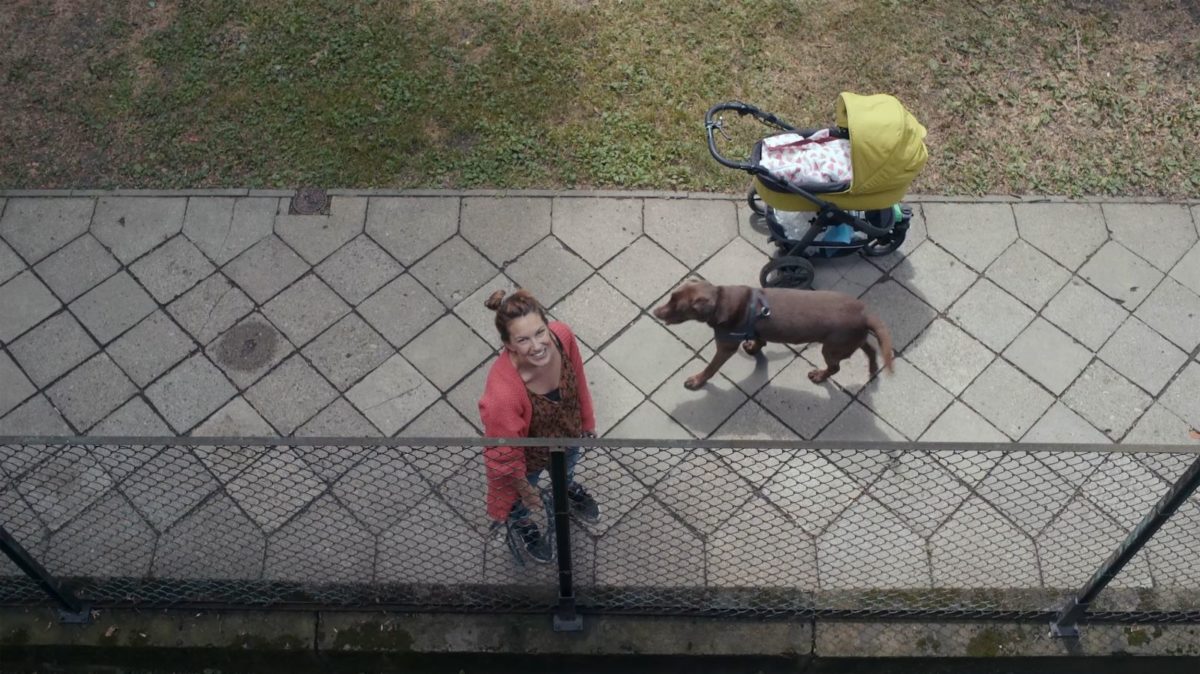
Taking a sight familiar to most during the pandemic––the view outside your window––and making it even more narrow, The Balcony Movie explores a universe of thoughts and emotions from passersby below. With this strict formal conceit, Pawel Lozinski’s documentary proves both delightful and existential: we hear from his Warsaw neighbors about work, love, loss, the meaning of life, and everything in-between. Its simplicity is a virtue, demonstrating that all we need for a little more human connection is the willingness to listen. Following a festival run, it’ll arrive on MUBI this month.
13. Something in the Dirt (Justin Benson and Aaron Moorhead; Nov. 11)

With their DYI approach to filmmaking, Justin Benson and Aaron Moorhead’s genre-tinged delights provided a grounded approach to the otherworldly. This is certainly the case for Something in the Dirt, a sci-fi oddity that premiered at Sundance earlier this year and will now arrive next month. Michael Frank said in his review, “The characters in Justin Benson and Aaron Moorhead’s films shouldn’t be in these situations. They’re out of their depth, caught up on a conspiracy, a cult, or an idea that’s far beyond their grasp. Something in the Dirt doesn’t change that narrative, instead doubling down on the absurd, conspiratorial situations that the filmmakers create, only for their lead actors to be swallowed up by the bigness of what they uncover. Once again using the DIY model, Benson and Moorhead co-direct and co-star in their newest human science-fiction adventure, playing two Los Angeles dudes who interact with a floating crystal. “
12. Bones and All (Luca Guadagnino; Nov. 23)

Bones and All, Luca Guadagnino’s first feature since Suspiria, is a considerable step up from his misstep of remaking Argento, while still not wholly achieving the peculiar balance he’s clearly striving for. Luke Hicks, who was more positive in his review, said, “The chemistry between [Timothée] Chalamet and [Taylor] Russell is off the charts. Their love is desperate, passionate, true, confused and confounded, perpetually crushing under the ethical crisis they face in killing innocent people to survive, not to mention the fact that they feel very differently about it. But through all of this clashing they conjure a sense of impenetrable connection, the kind that renders explosive conflict a mere hurdle opposed to a threat to the relationship. However, there are threats to the relationship. They’re just freaky people.
11. Nothing Lasts Forever (Jason Kohn; Nov. 11)

The opening sequence of Uncut Gems could have easily worked for Jason Kohn’s Nothing Last Forever, an entertaining, occasionally shocking exploration of all facets of the diamond industry. From the fabrication of socially accepted ideas of romantic love, pushing the scarcity myth, and above all the importance of crafting a good story, the film gives impressive weight to all sides of the twisty tale without painting anyone into a definitively villainous corner.
10. Meet Me in the Bathroom (Dylan Southern and Will Lovelace; Nov. 4)

The birth of the Strokes, LCD Soundsystem, Yeah Yeah Yeahs, Interpol, the Moldy Peaches, the Rapture, TV on the Radio, Liars, and more integral to the 2000s NYC indie-music scene gets captured in the new documentary Meet Me in the Bathroom. David Katz said in his review, “Meet Me in the Bathroom, adapted from Lizzy Goodman’s well-received oral history published in 2017, reckons with this somewhat but still seems designed as a nostalgia piece, a reminder, and maybe a reintroduction to a current generation of music fans where guitar-based sounds have been pushed to the sidelines. Like Asif Kapadia’s Amy, Lovelace and Southern favor a present-tense archival mode free of talking heads to distract from lost youth. It proceeds in a doggedly linear chronology, starting as the Strokes and Moldy Peaches strapped on their beat-up axes in ‘99, helping vanquish Fred Durst and pop-punk from MTV and the music monthlies. “
9. The Inspection (Elegance Bratton; Nov. 18)
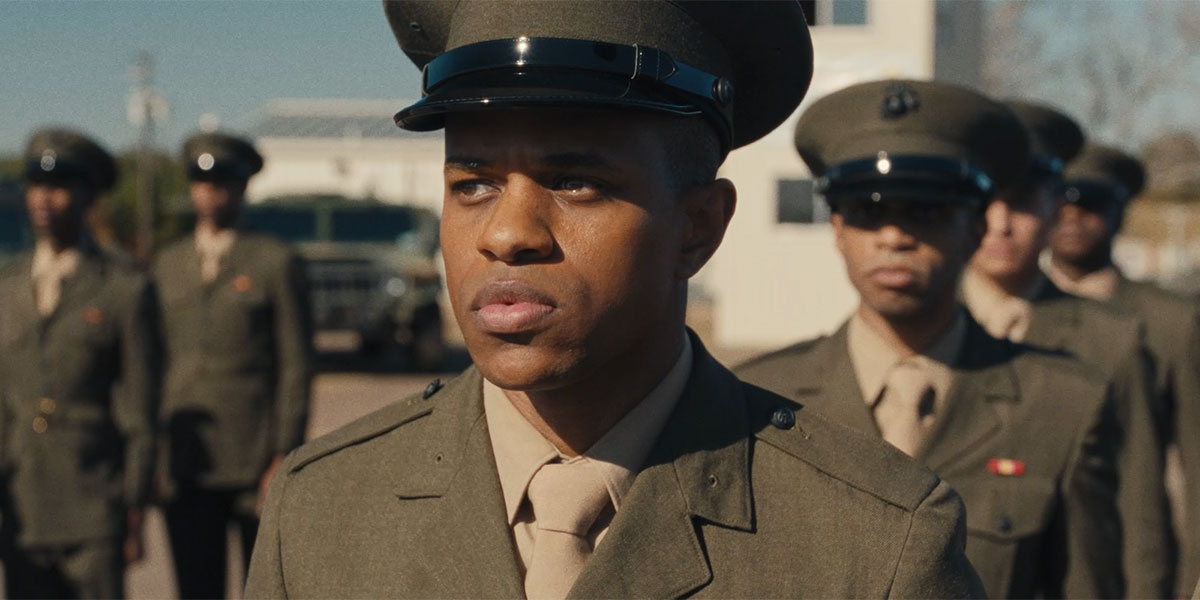
Following major slots at both TIFF and NYFF earlier this fall, Elegance Bratton’s narrative debut The Inspection is arriving this month. Ethan Vestby said in his review, “Positioned as a work of autobiography from first-time director Elegance Bratton, The Inspection is a flawed, if highly compelling promise of a new talented dramatist in American cinema. Bratton’s avatar in this case being Ellis French (Jeremy Pope), who we catch up with during his period as a homeless youth. Deserted by his unforgiving (yet of course Christian) cop mother Inez (Gabrielle Union) for being gay, he lives on the margins of society until making the last-ditch effort for redemption—or as he says, the chance to “die a hero”—by joining the Marines.”
8. She Said (Maria Schrader; Nov. 18)

Five years ago, New York Times reporters Megan Twohey and Jodi Kantor broke the story of Harvey Weinstein’s decades of sexual abuse, a watershed moment for the #MeToo movement and change for both Hollywood’s inner workings and the culture at large. Led by Carey Mulligan and Zoe Kazan, their story has received a cinematic treatment that met favorable reviews at the New York Film Festival last month. Jake Kring-Schreifels said in his review, “What makes She Said a unique entry in the cinematic-journalism canon is its insistence on showing both women’s motherly responsibilities without insinuating that family time amounts to some zero-sum game.”
7. Nanny (Nikyatu Jusu; Nov. 23)
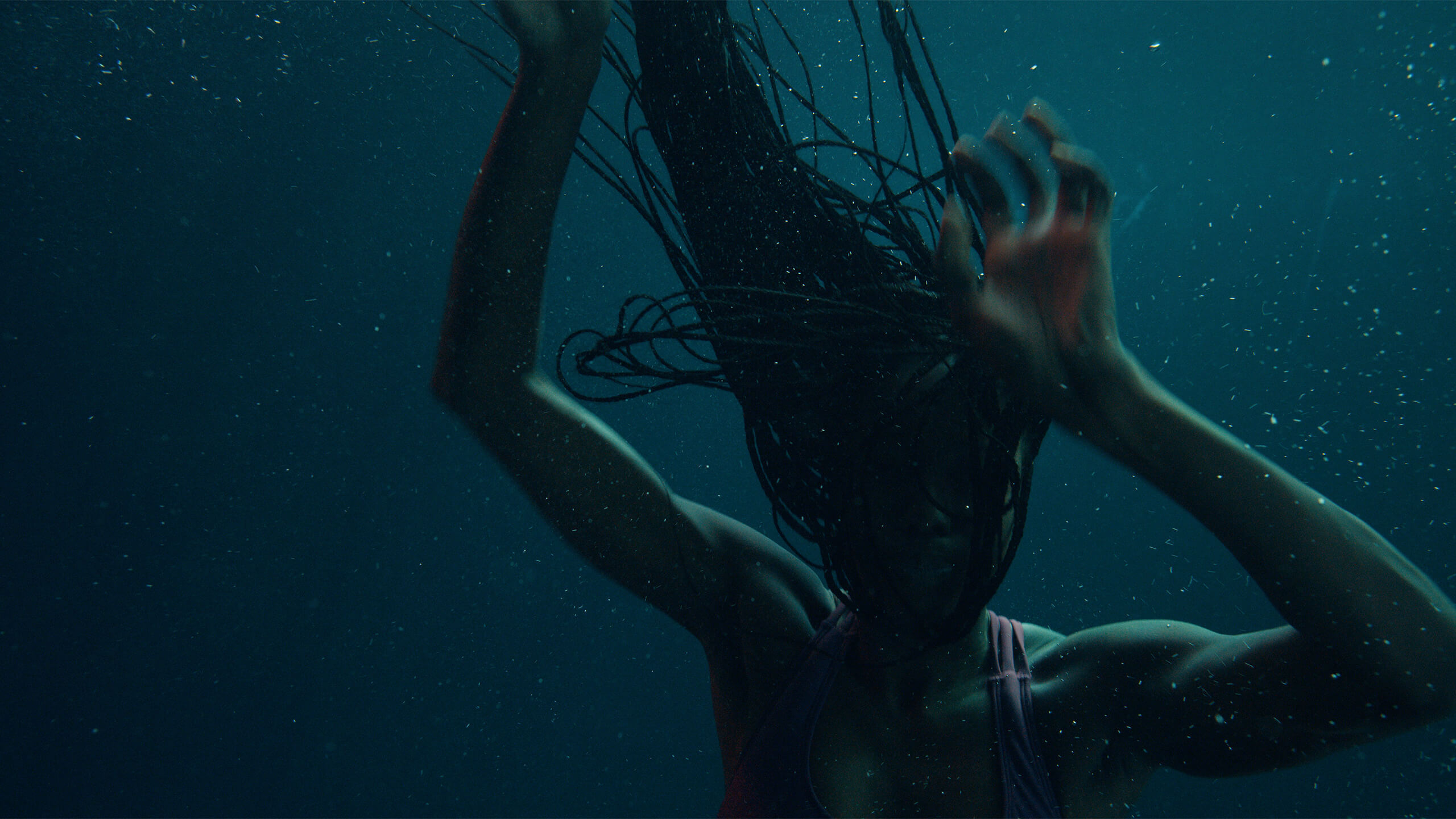
The jury prize winner at Sundance, Nikyatu Jusu’s Nanny filters a disquieting examination of the horrors of the American Dream through a Senegalese woman taking care of an affluent NYC couple. Margaret Rasberry said in her review, “With Nanny, Nikyatu Jusu presents a more haunting depiction of the American Dream. Her feature debut nods to Ousmane Sembène’s seminal Black Girl while distilling the trials her parents, immigrants from Sierra Leone, endured as Jusu grew up in Atlanta—a mix of domestic drama and frightening images to make us fellow outsiders in a suffocatingly insular world.”
6. Glass Onion: A Knives Out Mystery (Rian Johnson; Nov. 23)
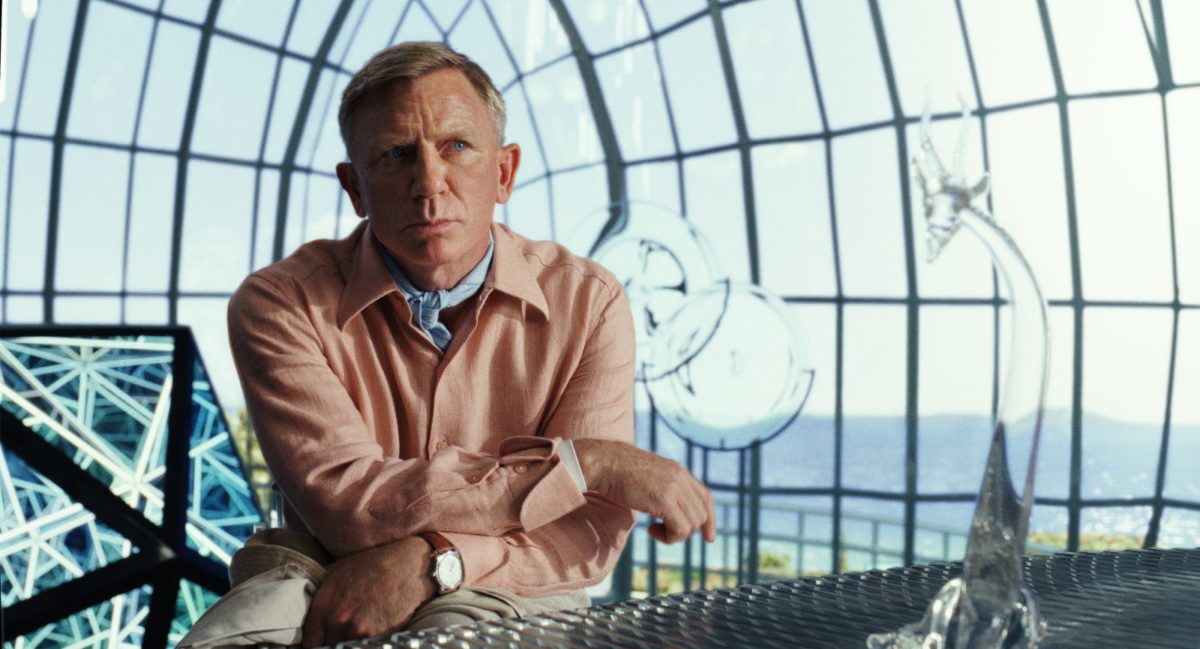
After Knives Out helped reignite the cinematic murder mystery, it’s no surprise Rian Johnson got the resources to crank out a few more Benoit Blanc tales. Ahead of a Netflix release next month, his sequel Glass Onion gets a one-week theatrical run just in time for Thanksgiving. Christopher Schobert said in his review, “Throughout his entire career, Johnson has maintained a winking charm. He is both above the audience and in on the joke. Never has that been more clear than in Glass Onion: A Knives Out Mystery, a film that delights in explaining to its audience all that they have missed, and somehow eliciting smiles rather than sneers. Some may greet such an approach with annoyance, but it is far more enjoyable to shrug one’s shoulders, smile, and go along for the ride.”
5. White Noise (Noah Baumbach; Nov. 25)
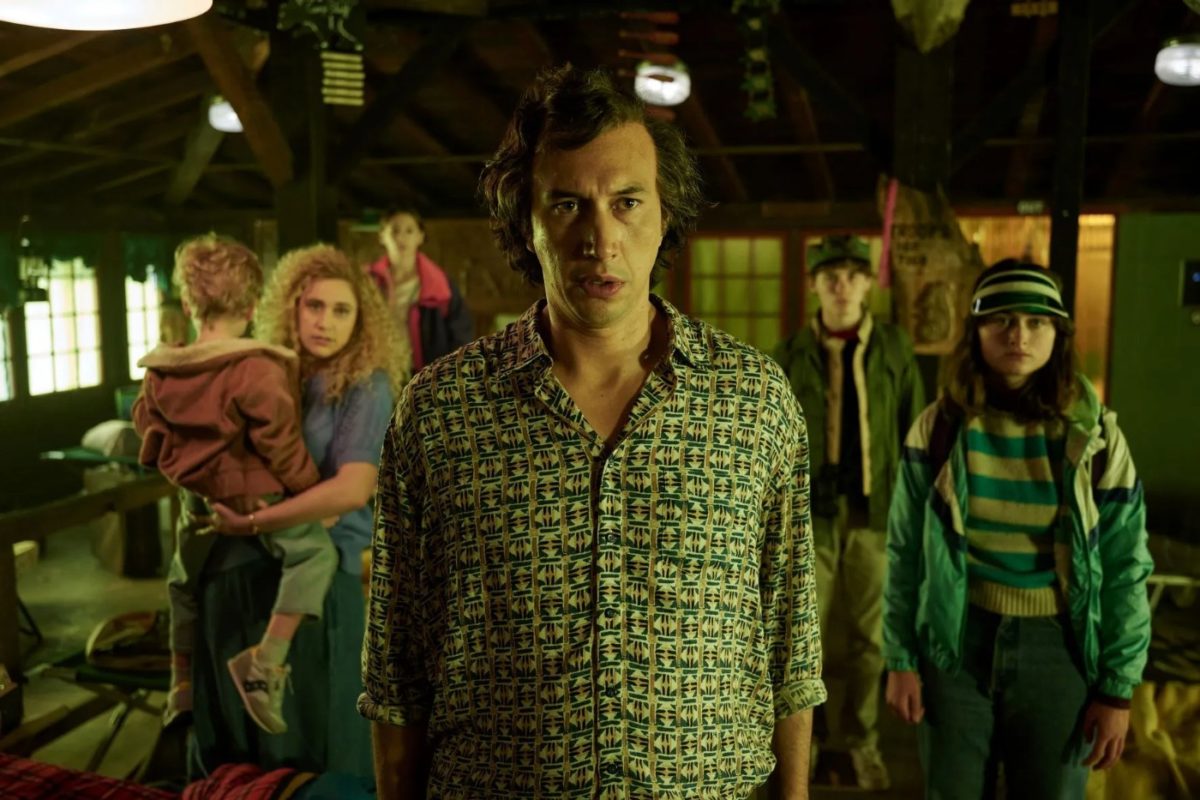
The fact that Noah Baumbach’s adaptation of the “unfilmable” Don DeLillo masterwork White Noise isn’t a total fumble is a near-miracle and, in passages, it’s some of the director’s most exciting work. As David Katz said in his review, “It feels condescending to brand Baumbach’s White Noise a “nice try,” considering how much the director has accomplished in the past, but it’s sadly quite accurate—if also more nuanced than calling it a failure or something that shouldn’t have been pursued. To know if White Noise would be a great film in addition to a great novel required attempting to make it, rather than it being dismissed by a producer or executive as implausible. And the director, fearlessly stretching out new areas of his craft, is a strong conduit for DeLillo’s still-unsettlingly vital ideas, even if he can’t broadcast them with the same pensive eloquence.”
4. Pinocchio (Guillermo del Toro; Nov. TBD)
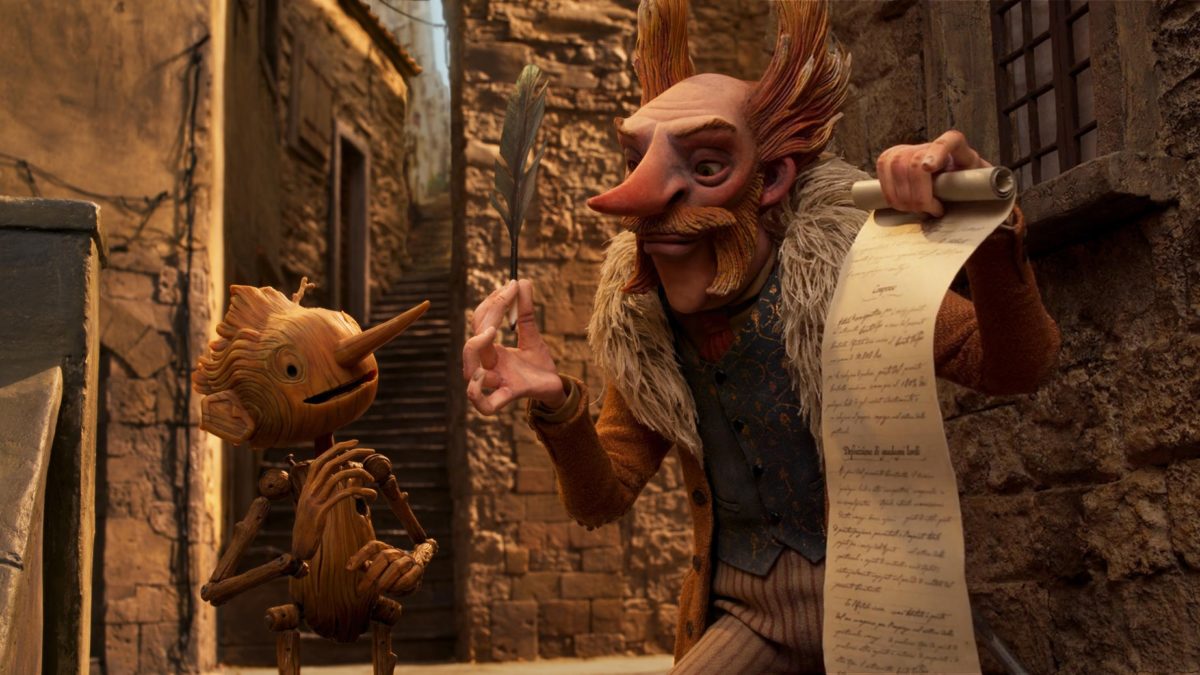
While the idea of dueling projects looking to pull away viewership from the other is laughable in our streaming age––as one can easily click around to watch anything they so desire––it’s safe to say Robert Zemeckis’ take on Pinocchio will be nearly forgotten by the time Guillermo del Toro’s version is released, if it hasn’t been already. While, shockingly, still without a precise November theatrical release date from Netflix, one will be announced soon. Alistair Ryder said his review, “Guillermo Del Toro and Mark Gustafson’s stop-motion adaptation, premiering a little over a month after the Zemeckis take kicked up a stink on streaming, might be the finest Pinocchio to have ever graced our screens, largely because it refuses to stay reverential to the material even if it is inherently inspired by and indebted to it.”
3. All the Beauty and the Bloodshed (Laura Poitras; Nov. 23)

One of the year’s best documentaries, Laura Poitras’ powerful Golden Lion winner All the Beauty and the Bloodshed will begin its limited U.S. release this month. As David Katz said in his review, “This is photographer, artist, and activist Nan Goldin, the downtown NYC rabble-rouser and chronicler, but one of the most fascinating elements of this film is how it doesn’t deign to zoom into a blur, where Poitras might attempt to illuminate one aspect of her remarkable life. So she pretty well takes all the aspects, but not to render them as an abstract expressionist blob you might find at the uptown art galleries which also play a significant role in this story. Poitras’ aesthetic is instead somewhat sterile in a good way: steely, interlocking, and monolithic like the sculptures of Richard Serra, another New York art star.”
2. EO (Jerzy Skolimowski; Nov. 18)
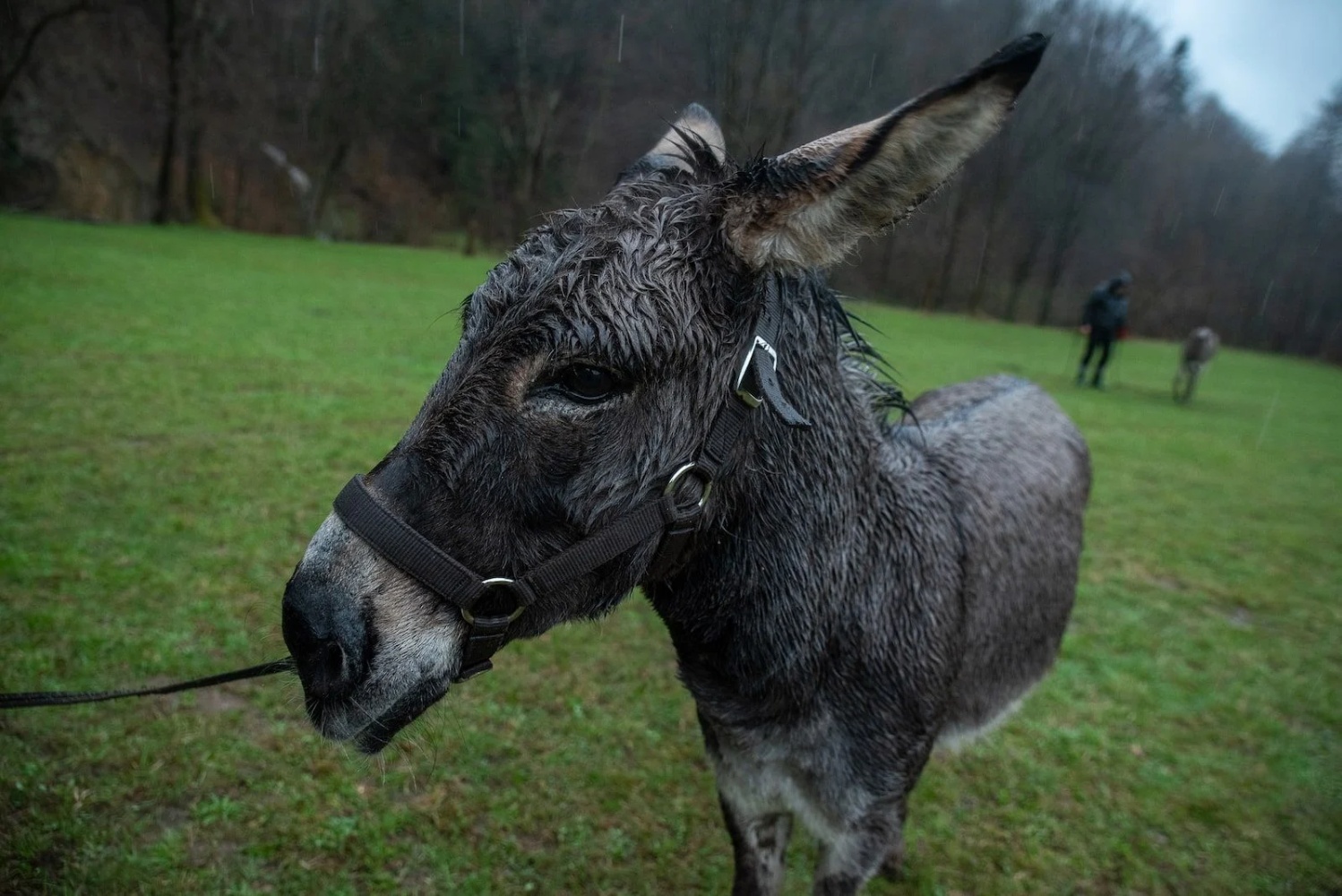
Leave it to an 84-year-old director to deliver one of the year’s most visually inventive, thoroughly surprising films. Jerzy Skolimowski’s EO, a Balthazar spin, arrives this month as the Cannes winner was recently minted as Poland’s Oscar entry. As David Katz said in his review, “The barrier of language and gulf of understanding between man and animal is the subject of the quite wondrous EO, a true surprise from the great Polish filmmaker Jerzy Skolimowski, now enjoying his mid-80s. It is adapted—freely inspired may be a better term—from Robert Bresson’s iconic 1966 film Au Hasard Balthazar; from EO’s opening minutes any memory or sense of that masterpiece’s forbidding stature is banished—we’re dealing with quite a different animal here. No, it isn’t as good. But it’s different, and a companion piece that flatters both that film and itself.”
1. The Fabelmans (Steven Spielberg; Nov. 11)
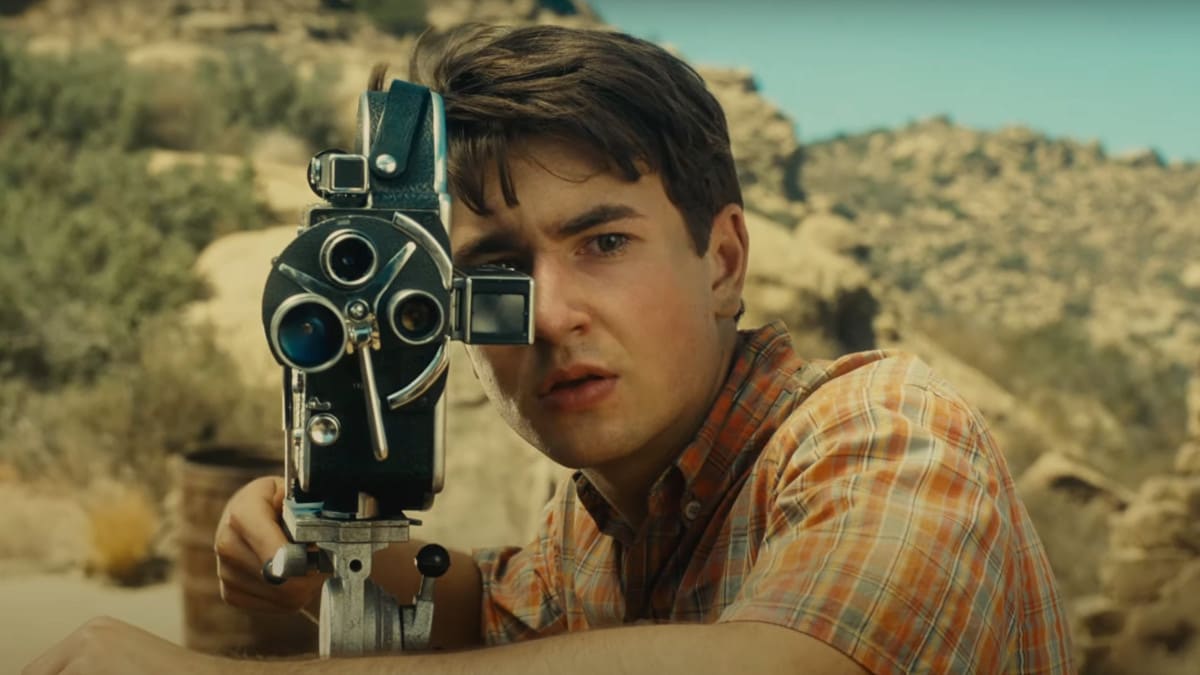
In what was perhaps the best qualitative jump for any director in the history of cinema, Steven Spielberg’s Ready Player One follow-up West Side Story proved the world’s preeminent blockbuster director still more than had his chops. He’s now returning with his most personal film yet. As Christopher Schobert said in his review, ” This is a warm, moving drama about the need to make art, whatever its cost. Sam (Gabriel LaBelle), the Spielberg stand-in, sees no other option. Filmmaking is not, as his father maintains, “a hobby.” Nor is it passion he’ll push to the side for the sake of family, as his pianist mother was forced to do. The Fabelmans is Spielberg’s explanation of why he is who he is, now and forever. It is also one of his most rich and rewarding family tales yet. “
More Films to See
- BARDO, False Chronicle of a Handful of Truths (Nov. 4)
- The Box (Nov. 4)
- Salvatore: Shoemaker of Dreams (Nov. 4)
- Soft & Quiet (Nov. 4)
- Utama (Nov. 4)
- You Resemble Me (Nov. 4)
- Weird: The Al Yankovic Story (Nov. 4)
- My Father’s Dragon (Nov. 11)
- Black Panther (Wakanda Forever) (Nov. 11)
- Stutz (Nov. 14)
- The Wonder (Nov. 16)
- Bad Axe (Nov. 18)
- There There (Nov. 18)
- The Menu (Nov. 18)
- Devotion (Nov. 23)
- The King of Laughter (Nov. 24)
- Leonor Will Never Die (Nov. 25)
